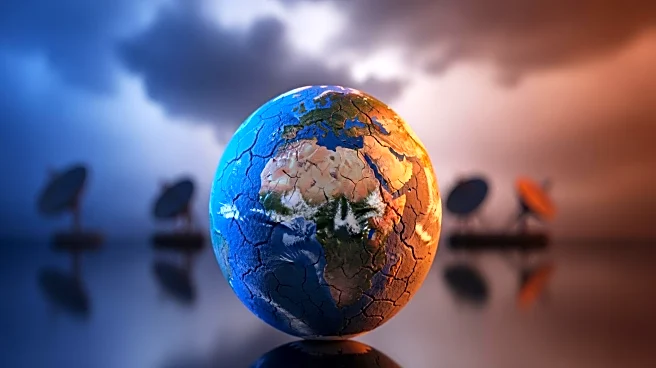What's Happening?
China has officially responded to President Trump's threat of imposing a 100% tariff on Chinese imports, stating that while it does not desire a tariff war, it is not afraid of one. This statement from China's Commerce Ministry comes amid escalating trade tensions between the U.S. and China, particularly concerning the export of rare earths, which are crucial for various consumer and military products. President Trump has accused China of being hostile and holding the world captive by restricting access to these critical minerals. Both nations have accused each other of violating the spirit of a trade truce by imposing new restrictions, with the U.S. expanding export controls on Chinese companies.
Why It's Important?
The ongoing trade dispute between the U.S. and China has significant implications for global industries reliant on rare earths, including technology and defense sectors. China's control over the majority of the world's rare earths mining and processing gives it substantial leverage in trade negotiations. The imposition of tariffs and export controls could disrupt supply chains, affecting manufacturers in the U.S. and Europe. The situation underscores the geopolitical complexities of trade relations and the strategic importance of rare earths in modern technology and defense.
What's Next?
The potential meeting between President Trump and Chinese leader Xi Jinping could be jeopardized by the escalating trade tensions. Both countries may continue to impose retaliatory measures, further straining relations. The U.S. is set to introduce new port fees on Chinese ships, which China plans to reciprocate. The resolution of these issues will likely require diplomatic negotiations, but the path forward remains uncertain as both sides hold firm in their positions.
Beyond the Headlines
The trade dispute highlights the broader issue of dependency on critical minerals and the need for diversification of supply sources. It also raises questions about the long-term sustainability of relying on a single country for essential materials. The situation may prompt countries to invest in alternative sources and technologies to reduce reliance on Chinese rare earths.








